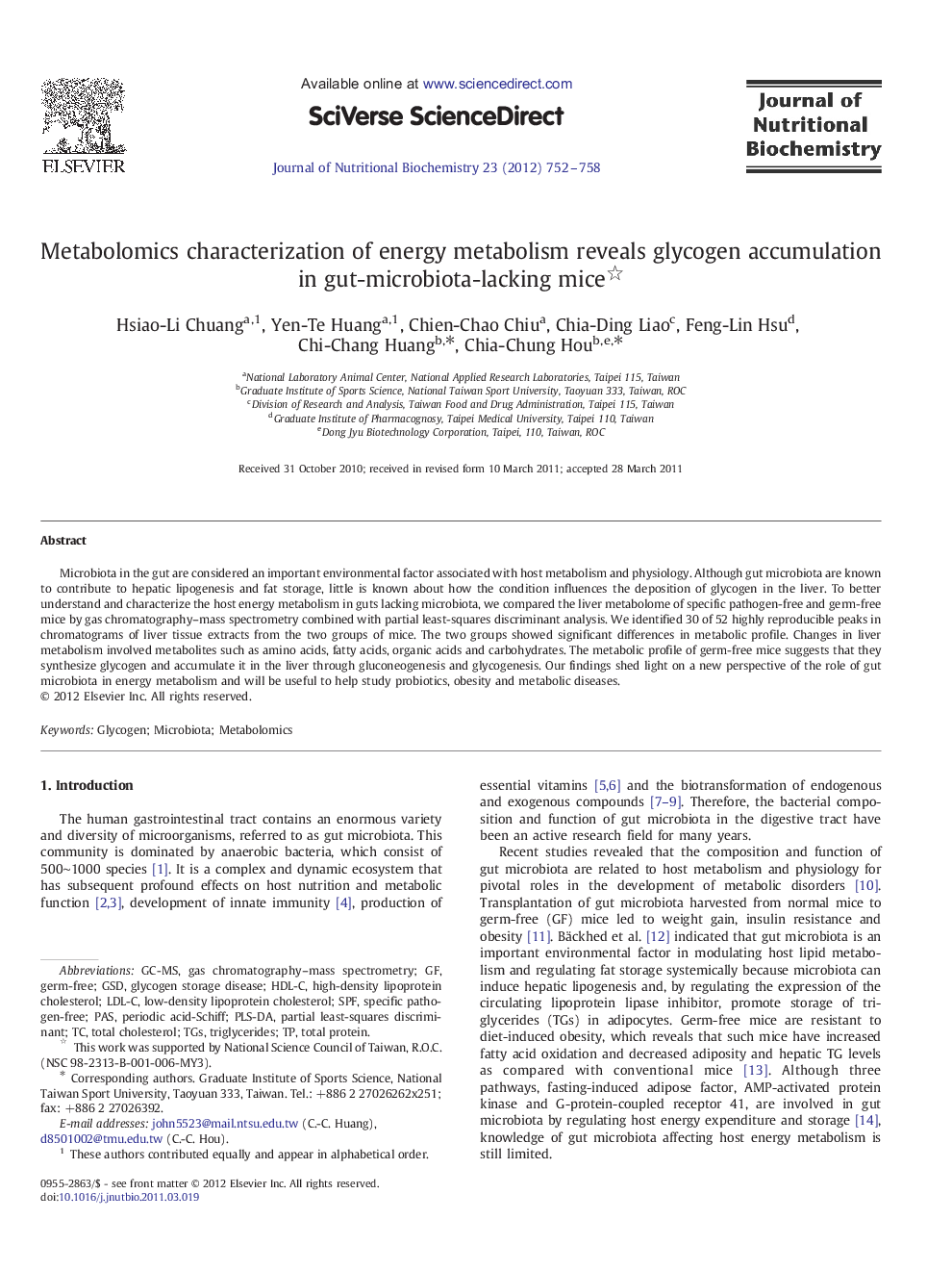| Article ID | Journal | Published Year | Pages | File Type |
|---|---|---|---|---|
| 1990323 | The Journal of Nutritional Biochemistry | 2012 | 7 Pages |
Microbiota in the gut are considered an important environmental factor associated with host metabolism and physiology. Although gut microbiota are known to contribute to hepatic lipogenesis and fat storage, little is known about how the condition influences the deposition of glycogen in the liver. To better understand and characterize the host energy metabolism in guts lacking microbiota, we compared the liver metabolome of specific pathogen-free and germ-free mice by gas chromatography–mass spectrometry combined with partial least-squares discriminant analysis. We identified 30 of 52 highly reproducible peaks in chromatograms of liver tissue extracts from the two groups of mice. The two groups showed significant differences in metabolic profile. Changes in liver metabolism involved metabolites such as amino acids, fatty acids, organic acids and carbohydrates. The metabolic profile of germ-free mice suggests that they synthesize glycogen and accumulate it in the liver through gluconeogenesis and glycogenesis. Our findings shed light on a new perspective of the role of gut microbiota in energy metabolism and will be useful to help study probiotics, obesity and metabolic diseases.
